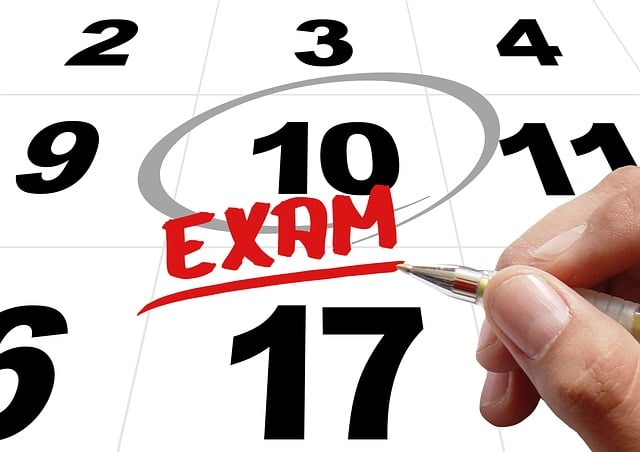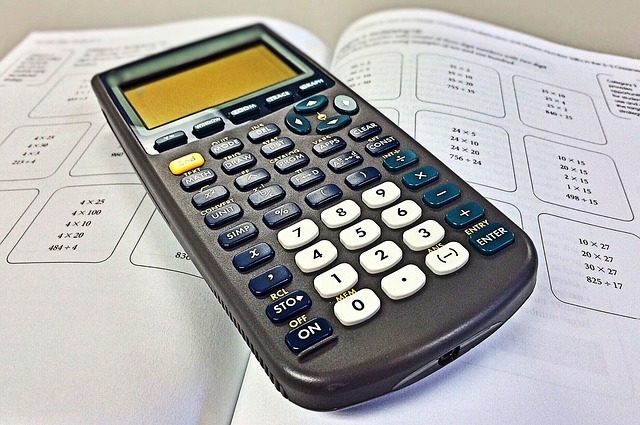Understanding exam formats guides tailored preparation. Physical activity enhances cognitive function during study. Exam proctoring ensures academic integrity, reducing stress. Structured plans, aligned with formats, replicate actual conditions for better performance. Active learning strategies like summarizing and teaching deepen knowledge retention. Practicing past exams and using flashcards aid understanding and memorization. Ethical study habits maintain academic integrity. Note-taking systems, tailored to learning styles, facilitate active engagement. Balanced routines include exercise, adequate sleep, and regular breaks for optimal memory consolidation. Self-care supports long-term academic success through personalized studying.
In the high-stakes world of exams, effective study strategies are not just beneficial but essential. Mastering the art of studying can significantly impact academic performance, shaping outcomes and fostering a deeper understanding of subjects. However, navigating the sea of information can be challenging, with various methods vying for attention. This article delves into the proven techniques and mindsets that separate exceptional learners from their peers, offering a comprehensive guide to optimizing study sessions for peak performance during exams naturally.
- Understand Your Exam Format and Structure
- Create a Study Schedule: Time Management
- Master Core Concepts: Building a Solid Foundation
- Practice with Past Exam Papers: Test Your Knowledge
- Utilize Effective Note-Taking Techniques
- Take Care of Your Mind and Body: Stay Sharp
Understand Your Exam Format and Structure

Understanding your exam format is a crucial first step in effective study strategies. Recognize that exams vary greatly, from multiple-choice questions to essays, presentations, or practical assessments. Each requires distinct preparation methods tailored to its nature. For instance, public speaking for exams demands practice and confidence-building, while math examinations may necessitate intensive problem-solving sessions.
Physical activity and academic performance have a surprising interplay. Research shows that regular exercise can enhance cognitive function, concentration, and memory retention. Incorporating short breaks during study sessions for light physical activities could significantly improve your ability to focus and retain information. This is particularly relevant when navigating complex subjects or lengthy exam papers.
Exam proctoring guidelines are essential to adhering to academic integrity standards. Familiarize yourself with the rules regarding allowed materials, permitted behavior, and time management. For online exams, ensure you have the required technology and a quiet, distraction-free environment. By understanding these guidelines, you can avoid unnecessary stress and focus on demonstrating your knowledge effectively.
NAP research underscores the importance of a structured study plan aligned with your exam format. Organize your study sessions to replicate the timing of the actual exam. This practice, combined with targeted preparation for specific question types, will empower you to perform at your best. Remember, effective studying is an art; adapt these strategies to fit your learning style and preferences, ensuring a holistic approach to exam readiness.
Create a Study Schedule: Time Management

Creating an effective study schedule is a crucial test-taking tip and trick that can significantly enhance your exam performance. Time management is the cornerstone of successful studying. Start by understanding your exam grading criteria; this will guide how you allocate time to each subject or topic. Break down your study sessions into manageable chunks, ensuring a balanced approach that covers all essential areas. For instance, a well-structured schedule might dedicate 25% of your preparation time to reviewing core concepts, 30% to practicing past exam questions, and the remaining 45% to addressing weak spots identified through initial assessments.
One effective method is the Pomodoro Technique, which involves studying for focused 25-minute blocks, followed by short breaks. This technique not only improves concentration but also ensures you make regular progress without getting overwhelmed. During your study sessions, prioritize active learning strategies such as summarizing notes, teaching concepts to a friend (or even an imaginary one), and creating mental associations. These methods help solidify knowledge and facilitate better retention, making your study time more productive.
Remember that effective time management isn’t just about covering material; it’s also about understanding exam questions and the criteria used for grading. Analyze past exams to get a feel for the types of questions asked and how they are weighted. This strategic approach ensures you focus on high-value topics and master key concepts, maximizing your study efficiency. For instance, if your history exam includes essay questions carrying 40% weight, dedicate more time to practicing historical analysis skills than rote memorization. By meticulously planning your study schedule, incorporating these test-taking tips, and understanding the grading criteria, you’ll be well on your way to excelling in your upcoming exams—and we’re here to help with our time management techniques for exams exactly when you need it most.
Master Core Concepts: Building a Solid Foundation

Mastering core concepts is a fundamental step in achieving exam success. It involves delving deep into the subject matter to build a solid foundation of understanding. This process goes beyond rote memorization; it encourages students to argue with evidence, connecting theories and facts in a meaningful way. For instance, instead of simply recalling historical dates, a student should analyze the underlying causes and effects, discerning patterns and drawing logical conclusions.
Active learning strategies play a pivotal role here. Engaging actively with course material through techniques like summarizing key ideas, teaching them to peers, or applying concepts to real-world scenarios strengthens retention. These strategies facilitate deeper processing of information, fostering a more nuanced grasp of the subject. For example, when studying for an essay exam, actively analyzing and structuring essay prompts multiple times can significantly enhance performance. It enables students to anticipate potential topics, organize their thoughts, and craft well-structured responses.
Visit us at active learning strategies anytime to explore more such techniques tailored to different subjects and learning styles. Leveraging these strategies early in the study process ensures that when exam time rolls around, you’re not just recalling facts but demonstrating a profound comprehension of the material. This level of mastery not only boosts confidence but also enables you to tackle even the trickiest exam questions with ease.
Practice with Past Exam Papers: Test Your Knowledge

Practicing with past exam papers is a powerful strategy to prepare for your exams. These papers serve as real-life simulations, allowing you to experience the format, time constraints, and level of difficulty. By attempting these papers under exam conditions, you can accurately assess your knowledge and identify areas that require further study. This process helps in understanding not just what you know but also where your strengths and weaknesses lie, enabling a more targeted approach to preparation.
Flashcards are another effective tool that can enhance your learning experience. They offer a structured way to review key concepts, formulas, or definitions. By actively creating flashcards and testing yourself regularly, you reinforce memory retention. This method is particularly useful for memorizing facts, dates, or technical terms, ensuring they stay firmly in your long-term memory. Moreover, combining flashcards with past exam questions can be a game-changer, as it helps in relating the studied concepts to their practical application in exam scenarios.
Preventing cheating during exams is paramount to ensuring academic integrity. Institutions employ various methods like proctored environments, secure question banks, and advanced monitoring systems. Students should also adopt ethical study habits, such as taking notes in their own words and avoiding sharing study materials or answers with peers. Understanding the importance of academic honesty fosters a culture of trust and fair assessment.
Exam questions often require careful interpretation and critical thinking. Students must learn to read questions thoroughly, identifying keywords that dictate the required response. Practice in understanding the question prompt 1-3 times to grasp its nuances before attempting to answer. This meticulous approach ensures you address all parts of the question and provide a comprehensive response. By prioritizing task management during study sessions—focusing on one topic at a time—you can enhance comprehension and prevent cognitive overload, maximizing your preparation exactly once for each exam.
Utilize Effective Note-Taking Techniques

Effective note-taking is a powerful tool for optimizing your study sessions and boosting exam performance. It’s not just about jotting down facts; it involves a structured approach tailored to your learning style. One proven method is the Cornell Note-Taking System, which encourages active engagement with the material. Divide your notebook into sections: a cue column for key terms and questions, a notes section for detailed explanations, and a summary area to synthesize the main ideas. This technique enhances comprehension and retention, making it easier to review and recall information during exams.
Understanding your unique learning style is another vital aspect. Some individuals are visual learners who benefit from diagrams, mind maps, or color-coding notes, while others prefer bullet points and concise summaries. Identifying your preferred study habits—whether that’s in a quiet library or a collaborative study group—is key to creating an environment that promotes effective note-taking. Quality sleep habits for optimal memory consolidation and consistent revision sessions further enhance the retention of information.
Data shows that students who employ active learning strategies, such as self-testing and elaborative rehearsal, outperform their passive counterparts. This can include explaining concepts in your own words or teaching them to a friend—a powerful way to solidify understanding. Remember, learning is not a linear process; it involves continuous reflection and adaptation. Embrace mistakes as valuable lessons, and reflect on what you could do differently next time. By aligning your study techniques with your personal learning style and incorporating active engagement, you can enhance your academic success significantly, especially when navigating challenging exams. Find us at learning from mistakes for more tailored strategies to refine your note-taking skills and maximize your study potential.
Take Care of Your Mind and Body: Stay Sharp

Studying for exams effectively requires a holistic approach that nurtures both your mind and body. In the frenzied lead-up to an exam, it’s easy to overlook self-care, but doing so can hinder your academic performance. Regular physical activity has been shown to enhance cognitive function and memory retention—benefits that directly translate to improved exam results. Incorporating 30 minutes of moderate exercise, such as brisk walking or cycling, into your daily routine can help keep your mind sharp and focused.
Understanding your unique learning styles is another crucial component of effective studying. Some individuals are visual learners who benefit from diagrams and infographics, while others are auditory learners who excel with recorded lectures or group discussions. Identifying your predominant learning style allows you to tailor your study methods accordingly. For instance, if you’re a kinesthetic learner, you might find it more beneficial to use flashcards for active recall or engage in role-playing scenarios when analyzing essay prompts.
Recognizing the interplay between physical and mental health is key to staying sharp during exam periods. Adequate sleep, balanced nutrition, and regular breaks from study can significantly impact your ability to absorb and retain information. Consider implementing a consistent sleep schedule, aiming for 7-9 hours per night, and fueling your body with nutritious meals to support optimal cognitive function. Additionally, incorporating short breaks into your study sessions—using techniques like the Pomodoro method—can help maintain concentration and prevent mental fatigue.
To enhance learning further, explore tools and strategies such as concept mapping, a powerful technique that facilitates deeper understanding by visually organizing information. By combining these practices with a mindful approach to studying, you can naturally improve your exam performance. Remember, taking care of your mind and body is not just about preparing for exams; it’s about cultivating long-term academic success and well-being. Find us at [concept mapping for understanding exactly] to delve deeper into effective study habits and unlock your full potential.
By embracing a strategic approach to studying for exams, you can significantly enhance your performance and reduce stress. Key insights from this article underscore the importance of understanding your exam format, creating a structured study schedule, mastering core concepts, practicing with past papers, employing efficient note-taking methods, and nurturing both mind and body. Incorporating these tactics naturally into your preparation routine will not only streamline your study sessions but also foster deeper comprehension and confidence. As you apply these principles, remember that effective exam preparation is a synthesis of meticulous planning and consistent execution—a powerful combination for achieving academic success.
About the Author
Dr. Emily Parker is a renowned educational psychologist specializing in exam preparation strategies. With over 15 years of experience, she has helped thousands of students enhance their academic performance. Emily holds a Ph.D. in Educational Psychology and is certified in Cognitive Behavior Therapy. She is a regular contributor to Education Today magazine and an active member of the American Psychological Association. Her expertise lies in designing effective study techniques tailored to individual learning styles.
Related Resources
1. Khan Academy (Online Learning Platform): [Offers a vast library of video tutorials and practice exercises across various subjects, ideal for supplementing exam study.] – https://www.khanacademy.org
2. National Institute of Mental Health (NIMH) (Government Portal): [Provides research-backed strategies for managing stress and anxiety during exams, ensuring mental well-being.] – https://www.nimh.nih.gov/health/topics/exam-stress
3. The University of California, Berkeley, Academic Success Center (Internal Guide): [Offers practical study tips, time management advice, and strategies for overcoming common exam anxieties.] – https://acadsuccess.berkeley.edu/study-skills
4. Pearson VUE (Exam Administration Company): [Presents a comprehensive guide to effective test-taking strategies, including time management techniques and question types to expect.] – https://www.pearsonvue.com/test-takers
5. Mind Tools (Online Resource Hub): [Features articles and tools focused on personal development and productivity, offering insights into effective note-taking, memory retention, and study habits.] – https://www.mindtools.com
6. American Psychological Association (APA) (Professional Organization): [Provides evidence-based guidance on studying and academic performance, backed by research in educational psychology.] – https://www.apa.org/topics/education
7. Coursera’s Study Skills Courses (Online Learning Platform): [Offers a range of free and paid courses designed to enhance study techniques, time management, and critical thinking skills.] – https://www.coursera.org/learn/study-skills

Leave a Reply